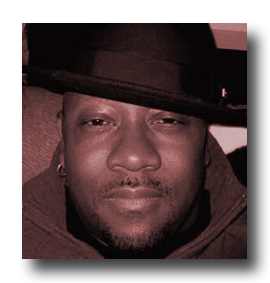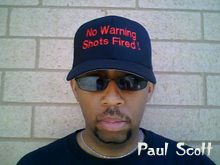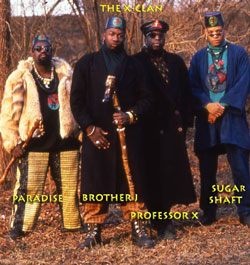 A few weeks ago an online discussion about the concept of Black Power and whether or not it was being diluted and gentrified popped up on the facebook page of Jared Ball, long time radio host, journalist and professor at Morgan State and author of several books including I Mix What I Like and A Lie of Reivention Correcting Manning Marable’s Malcolm X . A lot of interesting points were raised about the systemic erasing and distorting of history in academic settings which was resulting in a younger generation of scholars building theory and ideas off of faulty information. This online conversation sparked off a round table that was recently hosted on the syndicated Hard Knock Radio.
A few weeks ago an online discussion about the concept of Black Power and whether or not it was being diluted and gentrified popped up on the facebook page of Jared Ball, long time radio host, journalist and professor at Morgan State and author of several books including I Mix What I Like and A Lie of Reivention Correcting Manning Marable’s Malcolm X . A lot of interesting points were raised about the systemic erasing and distorting of history in academic settings which was resulting in a younger generation of scholars building theory and ideas off of faulty information. This online conversation sparked off a round table that was recently hosted on the syndicated Hard Knock Radio.
A couple of other scholars Dr Quito Swan of Howard University (Black Power in Bermuda) and Professor Rickey Vincent of UC Berkeley and SF State (History of Funk, Party Music) were contacted for a robust round table discussion that covered a variety of topics ranging from the history and origins of the term and what inspired Kwame Toure then known as Stokely Carmichael along with Willie Ricks to kick things off during a rally in 1966 in Mississippi.
http://www.youtube.com/watch?v=UpQ1woQ57j4
http://www.youtube.com/watch?v=Ed3b7uS3fn8
We talked about the deeper meanings behind the term and how it jived with the political and social dynamics at that time. We also talked about the harsh reaction to the term from the US government and how almost immediately there were efforts to both eradicate and redefine it.
Initially Black Power was a call for folks to stand up against imperialism and over the years its been reduced to economic prowess and later Black people’s to get in position of power and mimic imperialistic actions long taken by the US. As Jared Ball noted Black Power has now become an ‘American story‘ of success where the status quo is maintained vs one that steadfastly opposed wrong headed policies put forth by this country.
Ricky Vincent built upon many of the points he put forth in his new book Party Music which chronicles the way music was influenced by the Black Power movements.. He noted that Carmichael tapped into an energy of resistence that was bubbling amongst Black folks all over the world. He just gave it a name. The state via the FBI recognized that energy and spent alot of time trying to dismantle and stifle that energy controlling and using culture.
http://www.youtube.com/watch?v=UHnUFpCeGxQ
We also talked about how the concept of Black Power played out on the international stage. This is Quito Swan‘s area of expertise and he put forth a number of salient points and reminded us that one of the challenges we have today is that as some try to soften and redefine Black power, they leave out how the freedom struggles in the US linked up with freedom struggles elsewhere, from the Carribean , throughout Latin America and Africa. He focused in on the first Black Power Convention that took place in 1969 in Bermuda.
Below is our Hard Knock Radio show roundtable -Enjoy
http://www.audiomack.com/song/hard-knock-radio/the-gentrification-of-black-power


 Many have been up in arms about LL Cool J‘s lyrics in the song Accidental Racist where he expresses forgiveness for slavery (iron chains) if white America can accept him wearing sagging pants and a gold chain.. He explains that he has no problem with white people rocking the confederate flag if they don’t get freaked out with him wearing a doo rag..
Many have been up in arms about LL Cool J‘s lyrics in the song Accidental Racist where he expresses forgiveness for slavery (iron chains) if white America can accept him wearing sagging pants and a gold chain.. He explains that he has no problem with white people rocking the confederate flag if they don’t get freaked out with him wearing a doo rag..



 Vincent expounded by noting there was a constant flow of information from the community to the artists and vice versa. Now it seems walled off even at a date and time when we have so much new technology. Compounding this divide is the fact that pop music is showered upon via broadcast mediums making it easily accessible and overtly familiar while message and conscious music is not. He talked about the number of artists who have message type songs being discouraged and sometimes outright refused by their label to put them out, much less have it promoted.
Vincent expounded by noting there was a constant flow of information from the community to the artists and vice versa. Now it seems walled off even at a date and time when we have so much new technology. Compounding this divide is the fact that pop music is showered upon via broadcast mediums making it easily accessible and overtly familiar while message and conscious music is not. He talked about the number of artists who have message type songs being discouraged and sometimes outright refused by their label to put them out, much less have it promoted.


 Parker said he was just being honest and reflecting what folks say on street corners and in the barbershop. Perhaps..The irony is that in many of those barber shops, RG3 may carry himself in a way that they deem satisfactory, while calling Parker’s Blackness into question. For example, some might say Parker is a cornball brother for sitting on a panel, cheesing at white owned ESPN, a Disney company vs showcasing his talents on Black owned TV1.
Parker said he was just being honest and reflecting what folks say on street corners and in the barbershop. Perhaps..The irony is that in many of those barber shops, RG3 may carry himself in a way that they deem satisfactory, while calling Parker’s Blackness into question. For example, some might say Parker is a cornball brother for sitting on a panel, cheesing at white owned ESPN, a Disney company vs showcasing his talents on Black owned TV1. I always find this concept of
I always find this concept of  I recall during the height of the Black Power movements, in the 60s and 70s groups like the Nation of Islam (then known as the Black Muslims) along with others called for a nation within a nation. It was a type of secession of sorts. Leaders felt like the Democrats and Republicans were morally corrupt. They felt the Federal government was a sham and ideally things would get better if the nation’s Black population could take over the states they tilled the land for as slaves and call it a day. Freedom from oppression was the guiding force. Black folks were looking to get their 40 Acres and mule as promised by the Feds. Perhaps this will happen under the Republic of Texas. Broken promises shall be honored right?
I recall during the height of the Black Power movements, in the 60s and 70s groups like the Nation of Islam (then known as the Black Muslims) along with others called for a nation within a nation. It was a type of secession of sorts. Leaders felt like the Democrats and Republicans were morally corrupt. They felt the Federal government was a sham and ideally things would get better if the nation’s Black population could take over the states they tilled the land for as slaves and call it a day. Freedom from oppression was the guiding force. Black folks were looking to get their 40 Acres and mule as promised by the Feds. Perhaps this will happen under the Republic of Texas. Broken promises shall be honored right? There are many Chicano’s here in Texas who can recall the heights of the
There are many Chicano’s here in Texas who can recall the heights of the  Over the past few weeks The Cypress Times has carried several opinion pieces in our Op/Ed Section from supporters of the Texas Nationalist Movement. The Texas Nationalist Movement supports Texas secession, and the establishment of a free and independent Texas.
Over the past few weeks The Cypress Times has carried several opinion pieces in our Op/Ed Section from supporters of the Texas Nationalist Movement. The Texas Nationalist Movement supports Texas secession, and the establishment of a free and independent Texas.




